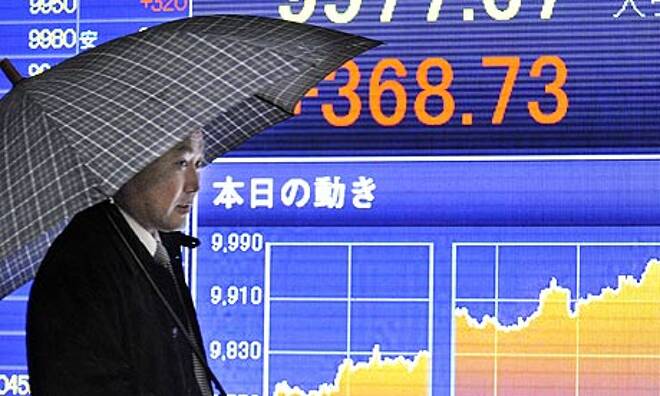Advertisement
Advertisement
Trump Willing to Bring Currency Manipulation to the Front and Center
By:
Investors should start looking for signs of tension between Japan and the U.S. over the near-term due to renewed concerns over currency manipulation after
Investors should start looking for signs of tension between Japan and the U.S. over the near-term due to renewed concerns over currency manipulation after the Bank of Japan made a surprise move in the Japanese Government Bond market on February 3.
For years, the two countries have sparred over the Dollar/Yen exchange rate especially since the Japanese currency began a prolong rise against the dollar nearly two years ago. However, most of the fighting has been done behind closed doors at Group of 7 summits and such. This time it may be different because President Trump implied recently that currency manipulation was one of the main reasons the U.S. was losing its competitive advantage in the global trade market.
Almost a year ago, Japanese Finance Minister Taro Aso spoke publically about the continuing disagreement between U.S. and Japanese policymakers over whether the rise in the Yen seen since June 2015 has been severe enough to warrant an intervention. Japan favors a weaker currency primarily because it makes the country’s exports more attractive.
Aso also reiterated that Japanese officials wouldn’t hesitate to intervene in the market if the currency continued its sharp moves. He also said the Treasury Department’s decision to put Japan on a currency manipulation monitoring list “won’t constrain” the country’s currency policy.
To those uniformed Trump haters out there who accused him of being too harsh with China, German and Japan when he called out the three countries for currency manipulation earlier in the year, keep in mind that all three made the Treasury list of currency manipulators in May of 2016 when it published its semiannual report on currency practices.
Trump is different than the previous president in that he isn’t going to sit back and let his advisors take on the issue of currency manipulations with Japan behind the closed doors of a G-7 meeting. He wants to bring the issue out front and center.
Early last week, Trump said, “Look at what China is doing. You look at what Japan has done over the year. They play the money market, they play the devaluation market and we sit there like a bunch of dummies.”
“We don’t understand what he’s talking about,” Vice Finance Minister Masatsugu Asakawa said on February 1.
Chief Cabinet Secretary Yoshihide Suga said that Trump’s criticism was “totally incorrect,” stressing that Japan’s foreign exchange policy sticks to agreements made by major economies at G7 and G20 meetings.
Prime Minister Shinzo Abe told parliament that suggestions that Japan was devaluing the Yen were off the mark.
Asakawa, the country’s top financial diplomat, said Japanese monetary policy is aimed at pulling the country out of the cycle of falling prices that has plagued it for decades. The government hasn’t intervened in currency markets for long time, he said.
Well call it what you want, but the Bank of Japan took action to weaken the Yen on February 3 when the BOJ stepped into the market with a special operation aimed at bringing the yield on the 10-year Japanese Government Bond back down to its target of around zero percent. The move essentially reigned in yields, helping to weaken the Japanese Yen.
This move took place against the wishes of the market. The market had driven yields higher. The market interpreted that the BOJ was basically allowing it to inch up from zero, and not trying to constrain the 10-year yield. According to analysts, the market was basically testing how strongly the BOJ feels about the 10-year interest rate guidance.
I believe in free markets for free men so going in to stop the rising 10-year yield was manipulation.
Last Monday, the BOJ raised its economic growth forecasts. It also predicted that inflation would rise to around its target of 2 percent around fiscal 2018.
So why the intervention? It was done to assure the weaker Japanese Yen because the currency is getting dangerously close to revisiting levels not seen since early November. If the BOJ really thought the economy had turned an important corner then the only reason to drive yields down was to make the Yen cheaper so that global investors would continue to buy Japanese goods.
And that my friend is currency manipulation, in my opinion. Let’s wait and see if Trump feels the same way. We may know shortly so watch for a tweet.
About the Author
James Hyerczykauthor
James Hyerczyk is a U.S. based seasoned technical analyst and educator with over 40 years of experience in market analysis and trading, specializing in chart patterns and price movement. He is the author of two books on technical analysis and has a background in both futures and stock markets.
Advertisement
